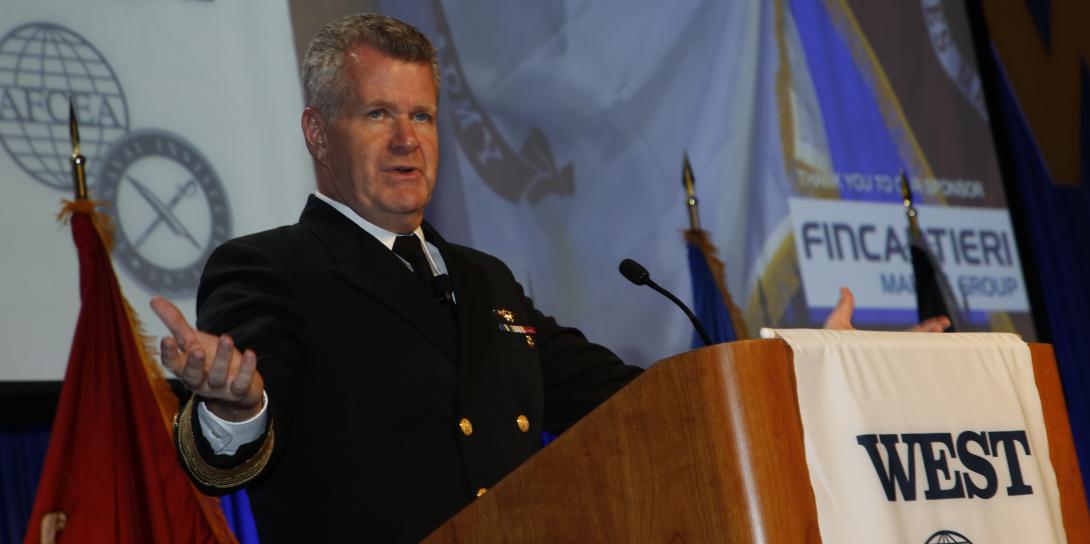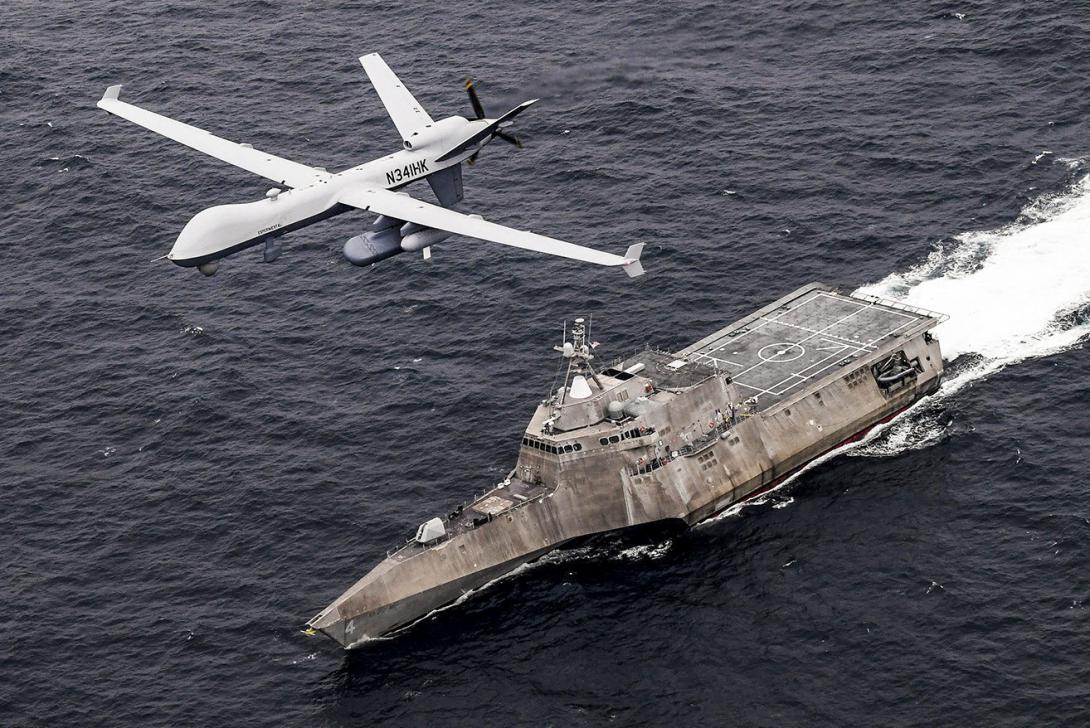Command and Control Begins With People
Information operations is one of the critical elements to the U.S. strategy in the Indo-Pacific region, Adm. Samuel Paparo, USN, commander, U.S. Pacific Fleet, told the audience at the WEST 2022 conference and exposition hosted by AFCEA International and the U.S. Naval Institute in San Diego February 16-18.
Serving as the luncheon keynote speaker on the second day of the conference, Adm. Paparo touted the importance of more effective information operations, saying that means controlling what we know “in terms of securing our networks” and assured command and control, as well as the alignment of top-level, key messages, including how the United States listens to those messages. “At least one half of communications is listening. As they say, God gave you one mouth and two ears. That’s a good ratio to start with. Work from there,” he said.
Adm. Samuel Paparo, USN, commander, @USPacific Fleet: At least one half of communications is listening.
— George Seffers (pronounced See furs) (@gseffers) February 17, 2022
... As they say, God gave you one mouth and two ears. That’s a good ratio to start with. Work from there.#WEST2022
Asked about the need for more formal treaties with other nations in the region to more effectively share information, the Pacific Fleet commander touted the need to begin with trusted relationships. “C2 is always people and systems. In people, first begins that leap that our nation must make if we are going to intertwine our faiths with our alliances,” he said. “We’ve got to be able to trust them with classified information with the understanding that they’ll be equally protective of our sources—technological and human—as we are.”
He emphasized the need for trust and for partners and allies to operate with a common picture of the battlespace. “And then the next element is trust among people. And that is finding every single opportunity we can to work together, to bridge cultural differences, to be in each other’s company, to see that we can trust each other and to build those personal relationships,” he added.
Lastly, and often the “long pole in the tent” is “the information systems that allow that kind of sharing.” He added that the Indo-Pacific Command leadership has an Indo-PACOM Partner Network as one of the command’s top priorities. “That allows us to share that information at those levels so that we are actively operating and communicating on a shared network. And we have to take every single opportunity that we can to train and to operate and to cultivate those networks every single time,” he added.
He also stressed the need to interfere with an adversary’s command and control decision making. “I’ll lay it out plainly. … The commoditization and the proliferation of long-range strike weapons means that we’re no longer safe just based on geography. So, our first priority is the ability to counter an adversary’s ability to see, understand, decide and act through every single domain, to be able to dazzle, to be able to deceive, to be able to destroy those components that allow an adversary to exercise decision superiority,” Adm. Paparo declared.
Those long-range strike capabilities also are a top priority. “A priority is, in fact, those long-range fires, specifically, Maritime Strike Tomahawk, hypersonics, conventional prompt strike. The list is long and glamorous of the capabilities that our great nation has brought to bear. We need them. We need more of them. And we need them faster,” he asserted.
And the United States must be able to sustain those capabilities consistently across all classes of supply and while under pressure from adversaries, he noted.
The admiral began his speech by stressing the need to uphold the international rules-based order, which means “nations do not change their borders with the use of force.”
If China were to force a reunification with Taiwan, he asserted, it would “set in motion a cascade of events across the entire Indo-Pacific that will directly affect the United States of America and our allies and partners,” and he suggested that countries friendly to the United States, such as Japan and South Korea, “are left with a critical choice, which is either to submit to the economic and political control that will undoubtedly follow or to arm to the teeth and go nuclear.”
Adm. Samuel Paparo, USN, commander, @USPacific Fleet: If the PRC unifies Taiwan by force to the mainland, this will set in motion a cascade of events across the entire Indo-Pacific that will directly affect the United States of America and our allies and partners. #WEST2022
— George Seffers (pronounced See furs) (@gseffers) February 17, 2022
The fleet commander also pointed out that the United States is a “treaty ally” with a number of nations in the region and is obliged to defend them. He said that for deterrence to work, competitors “must know that you’ve got the capability and the will to impose those costs.”




Comments